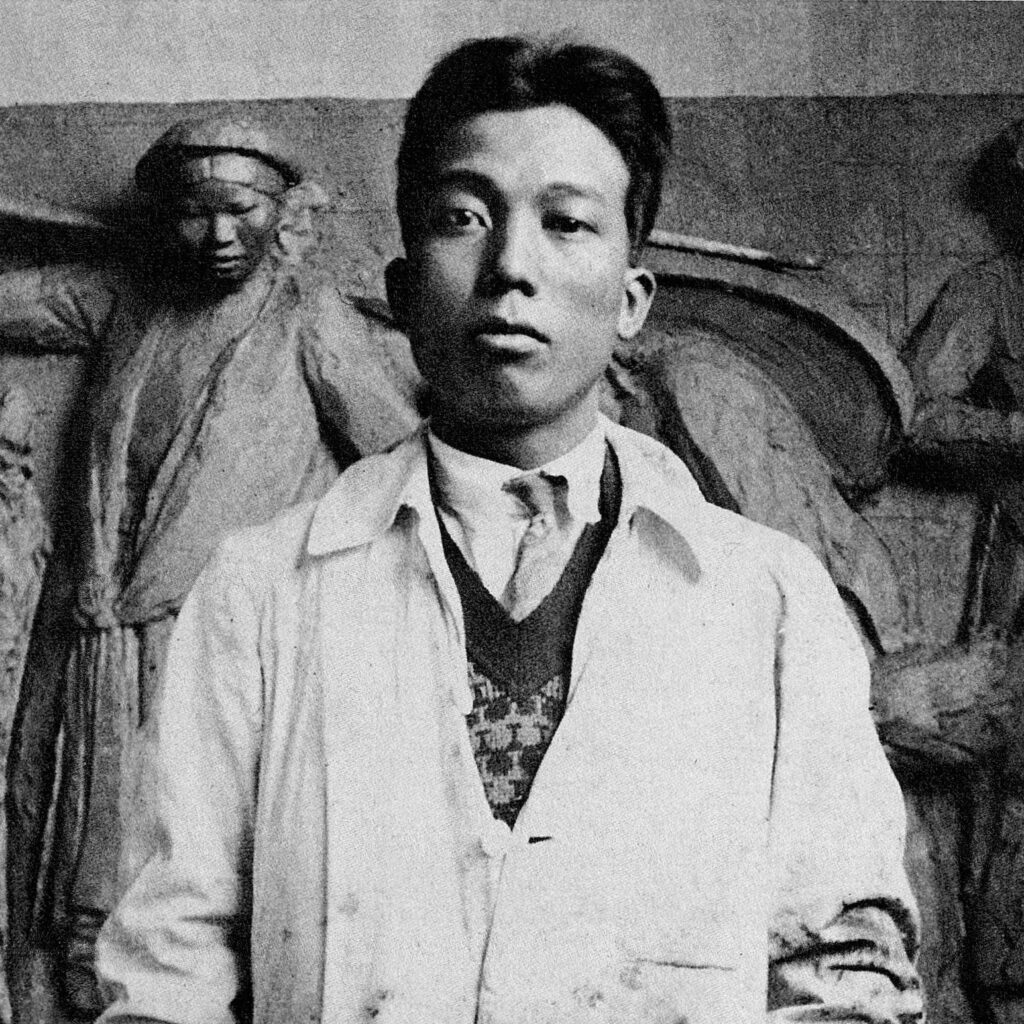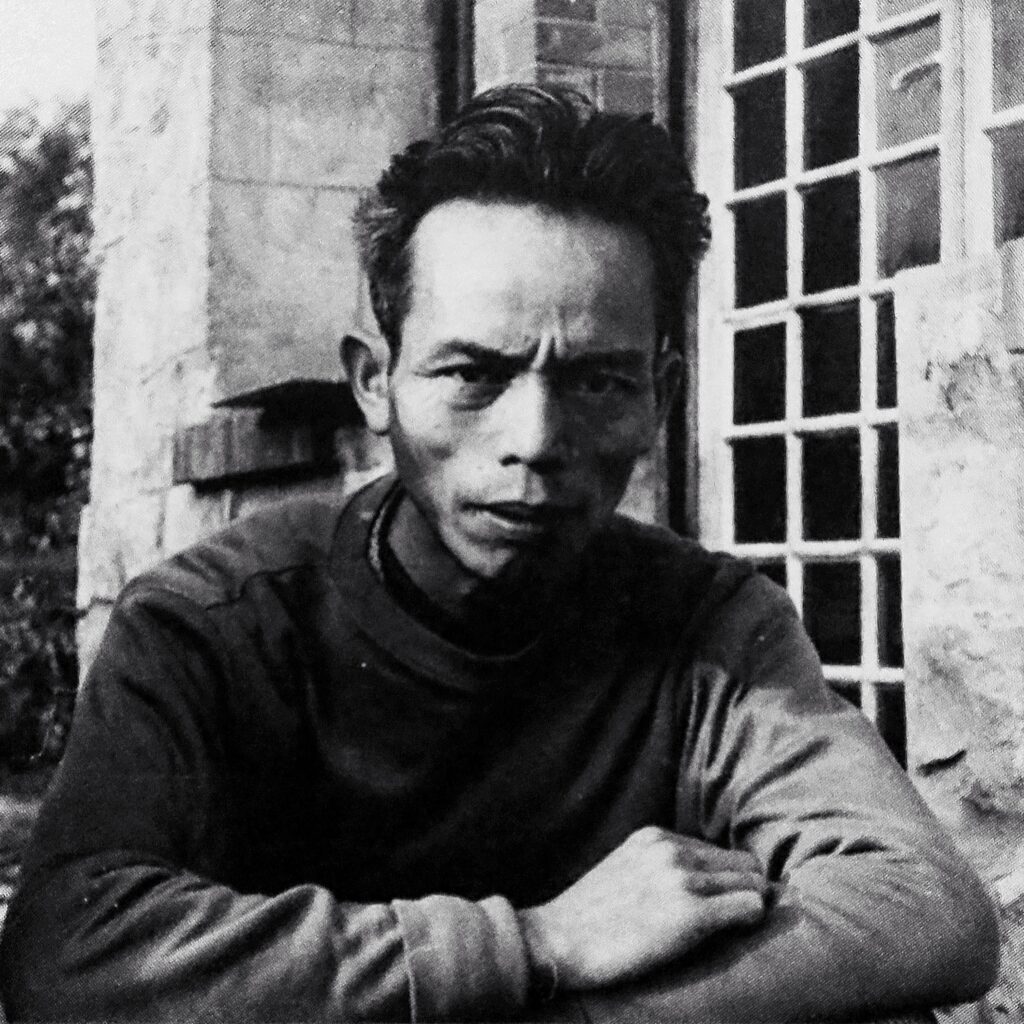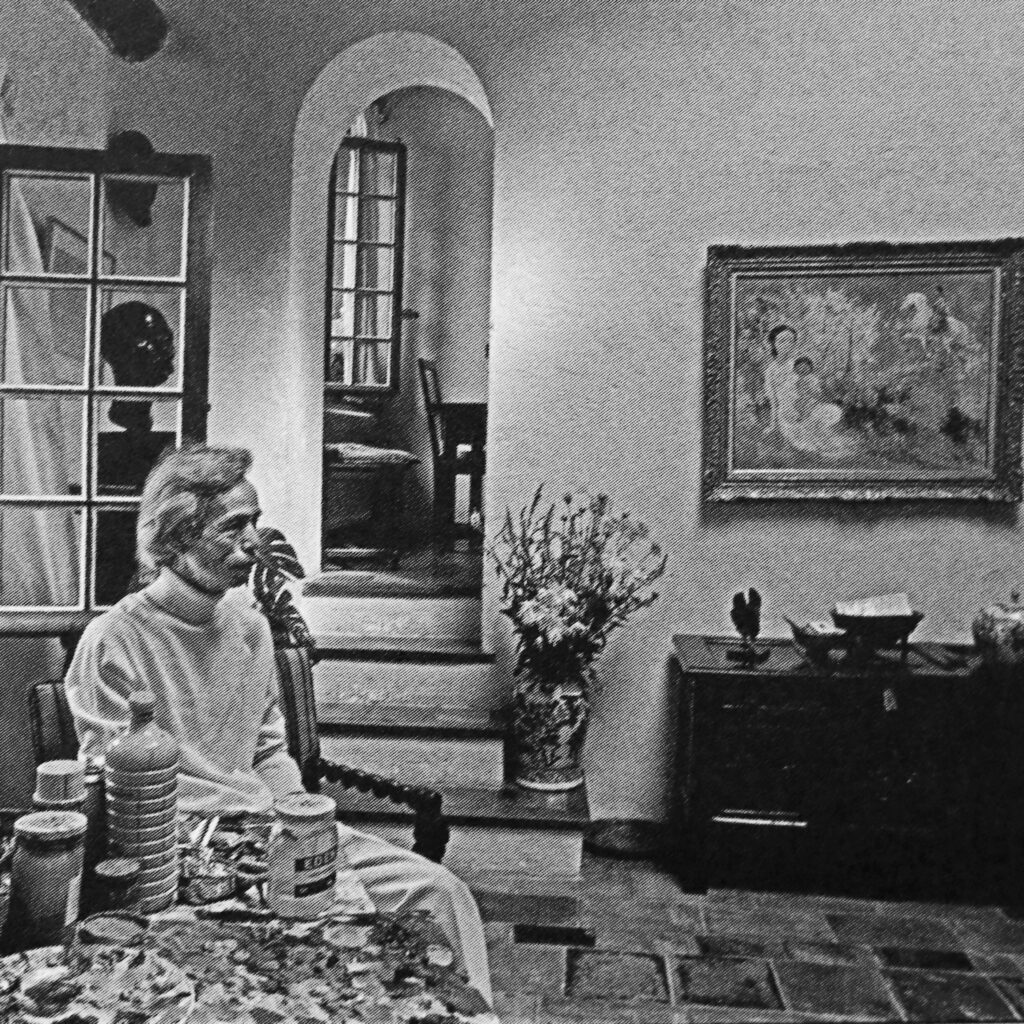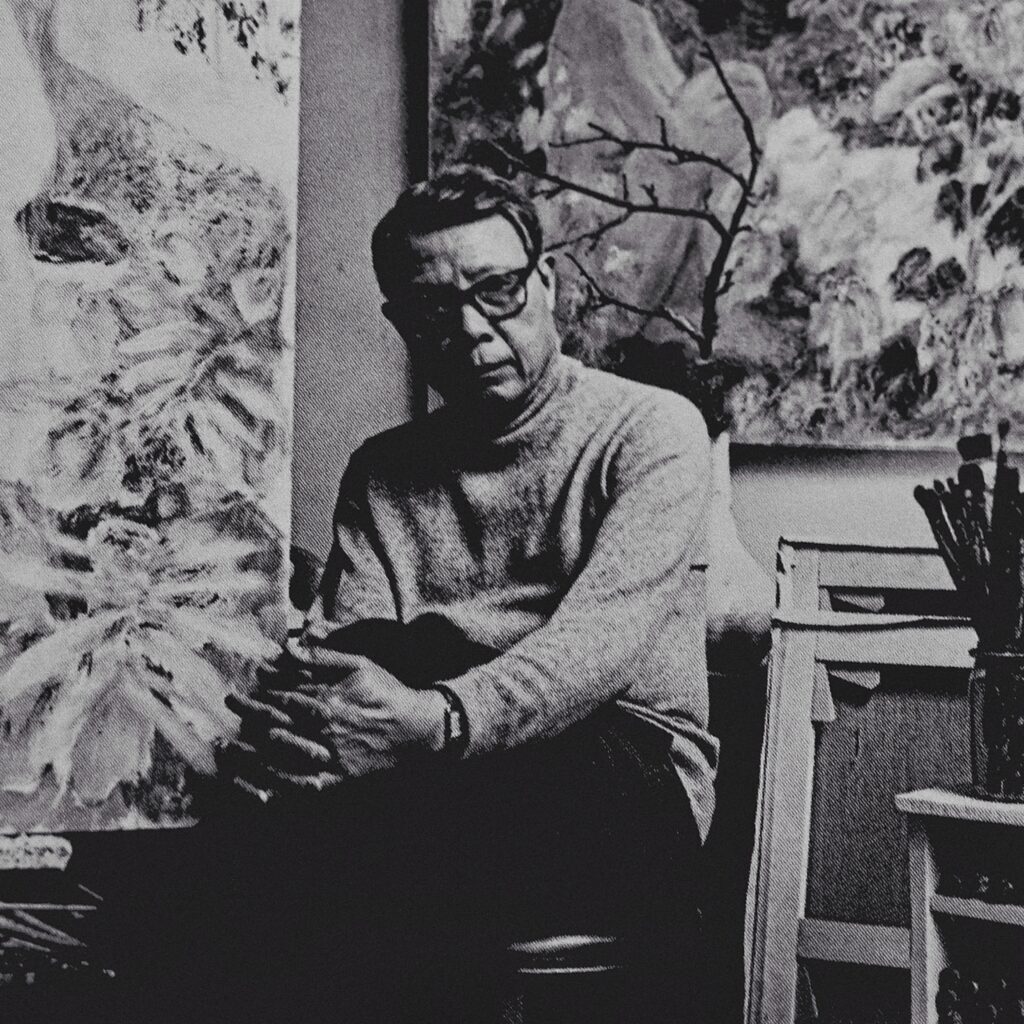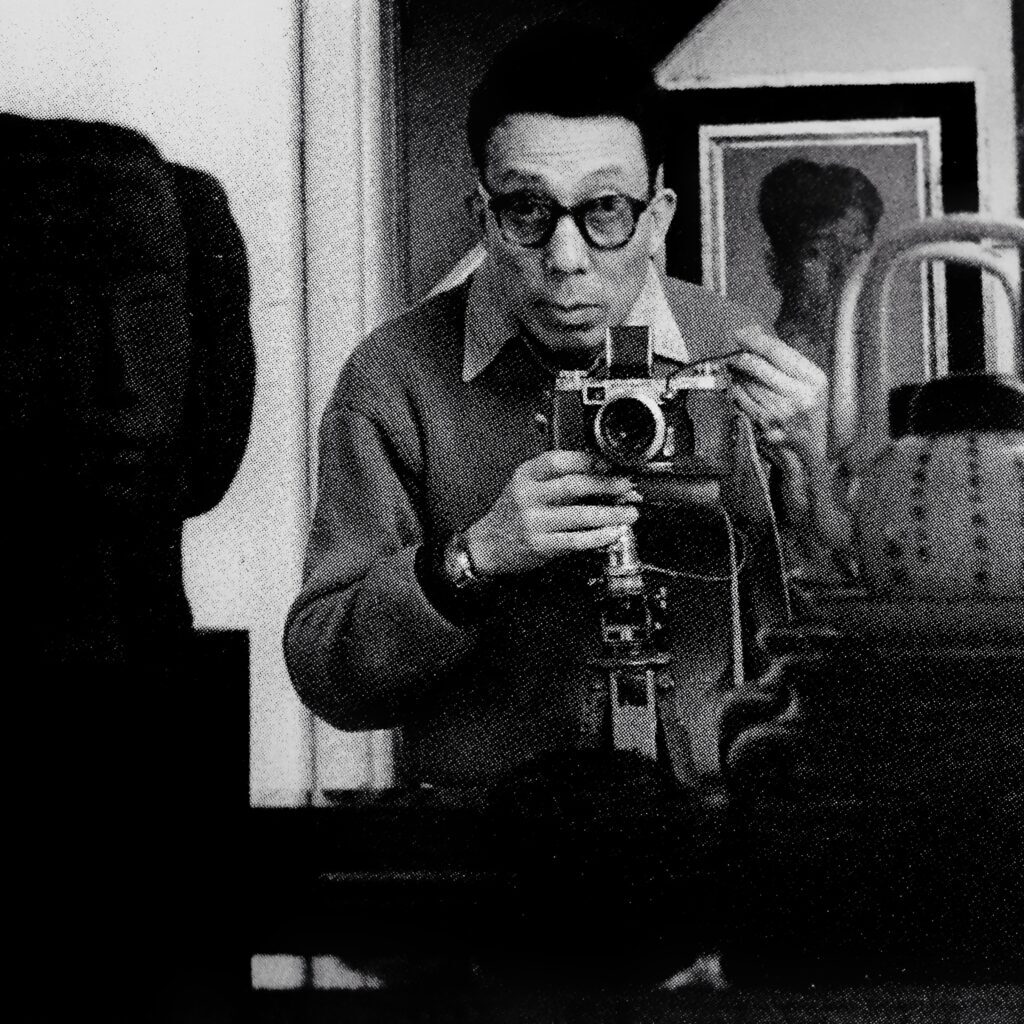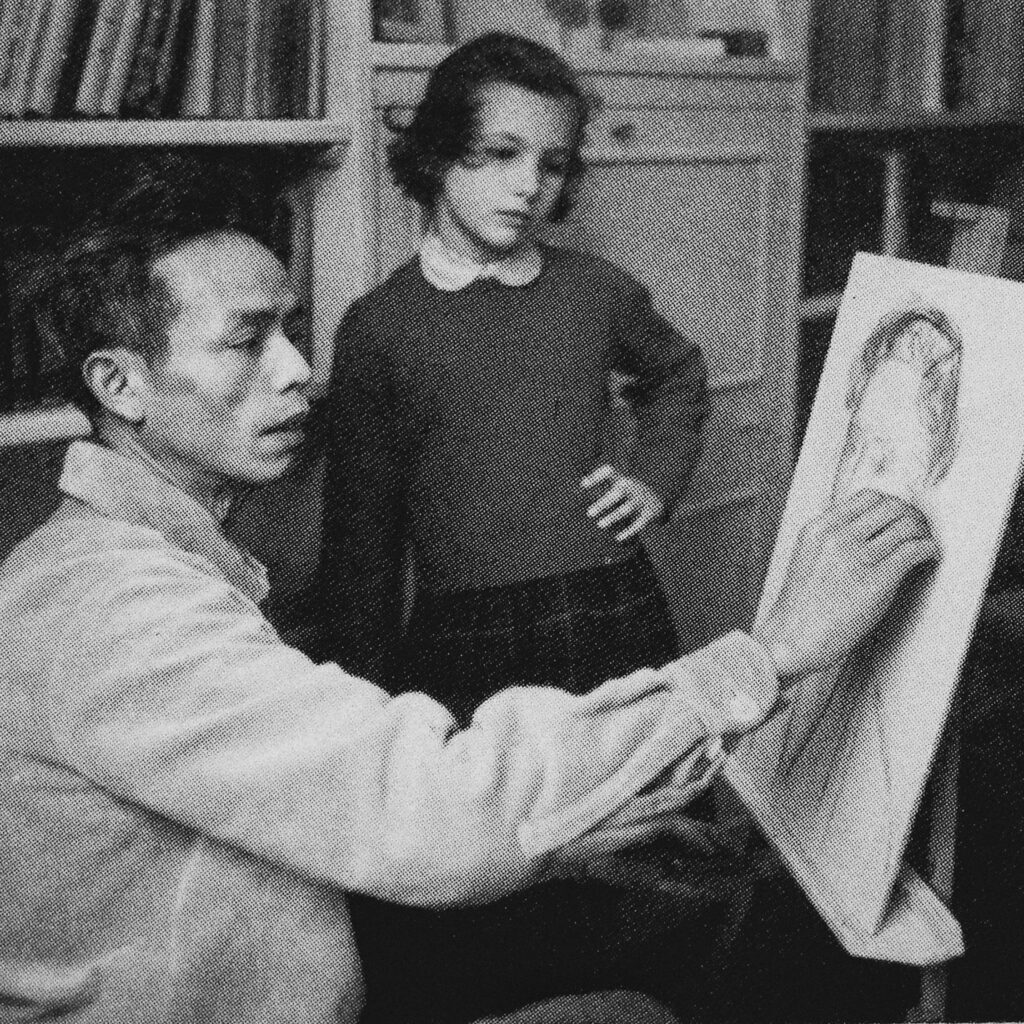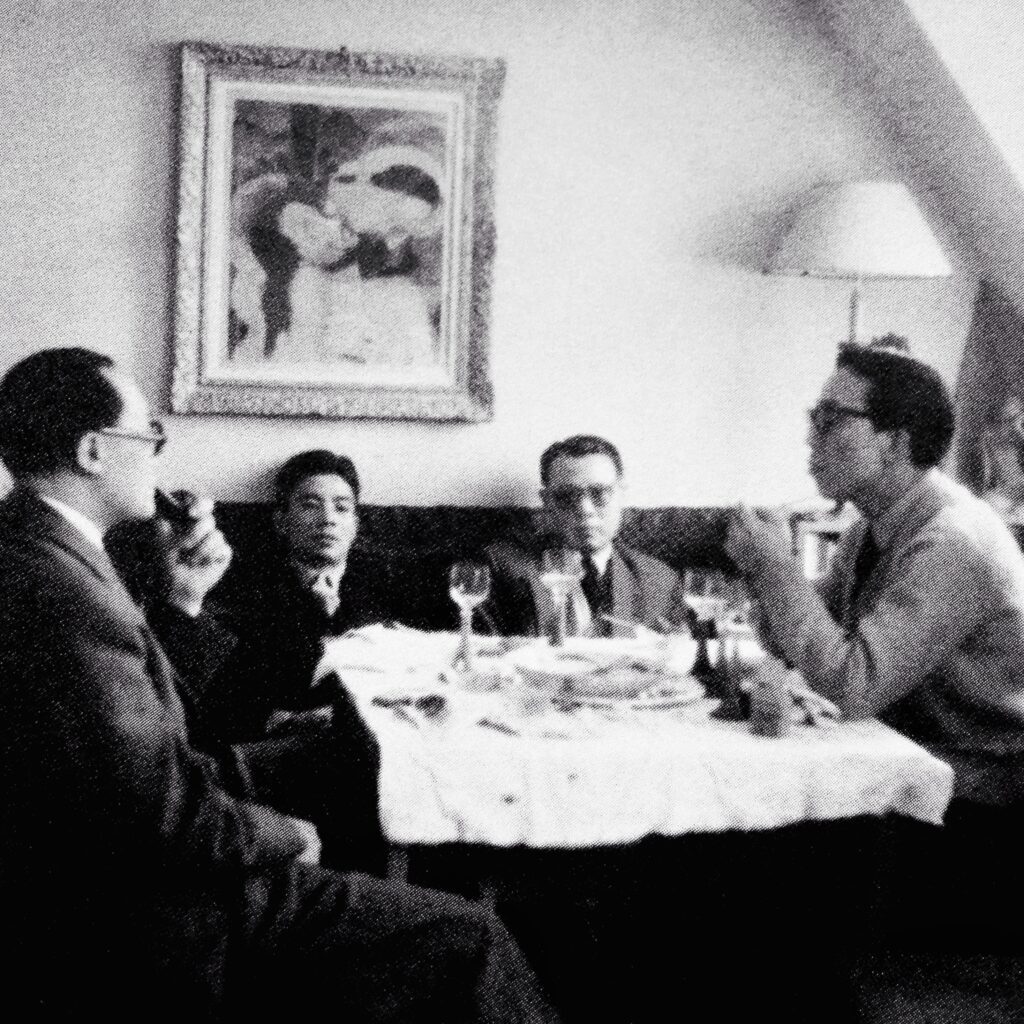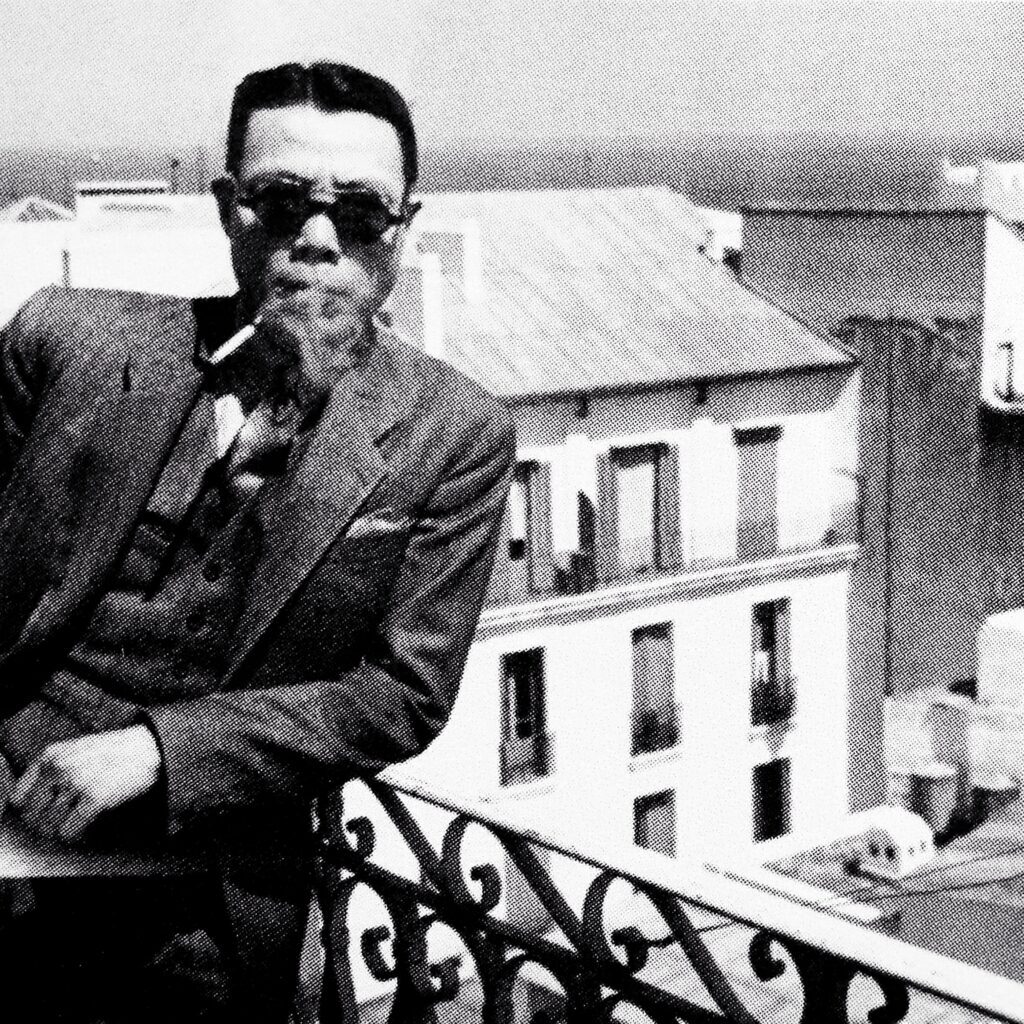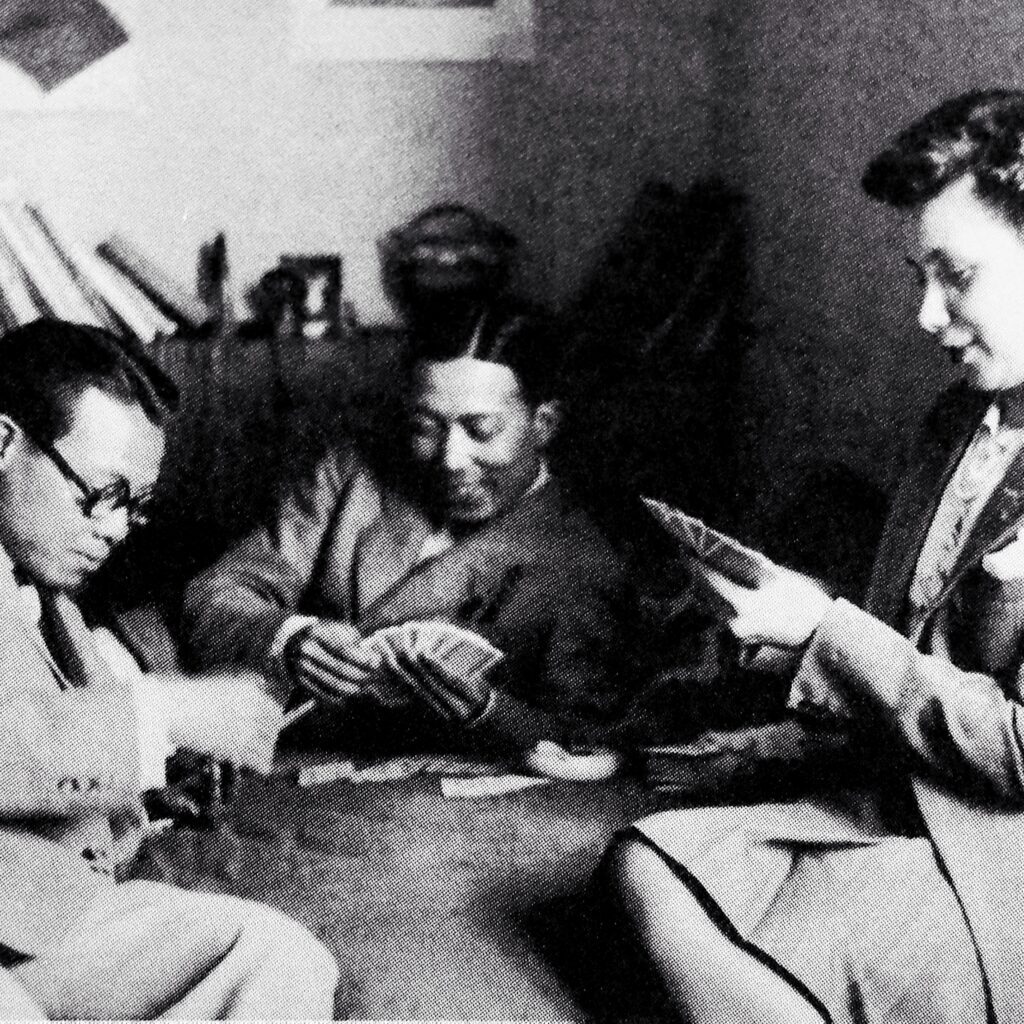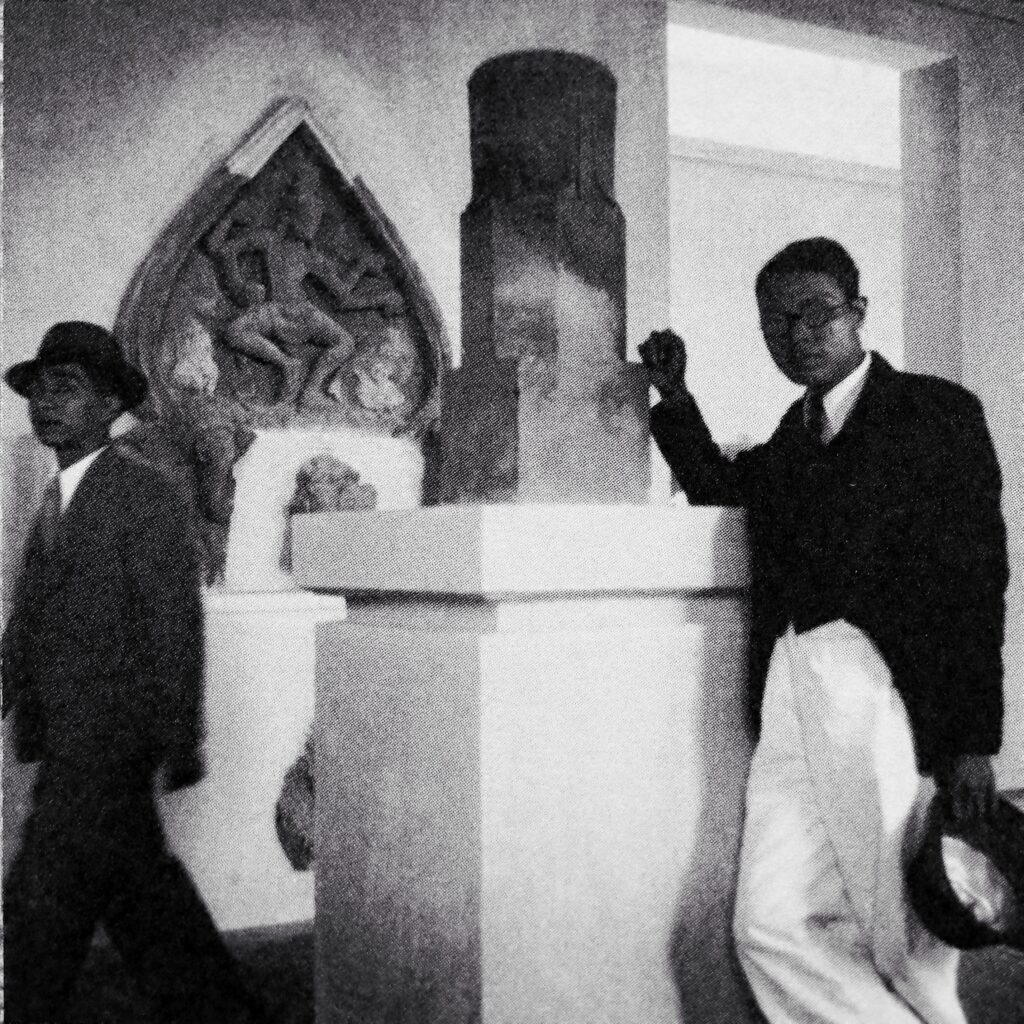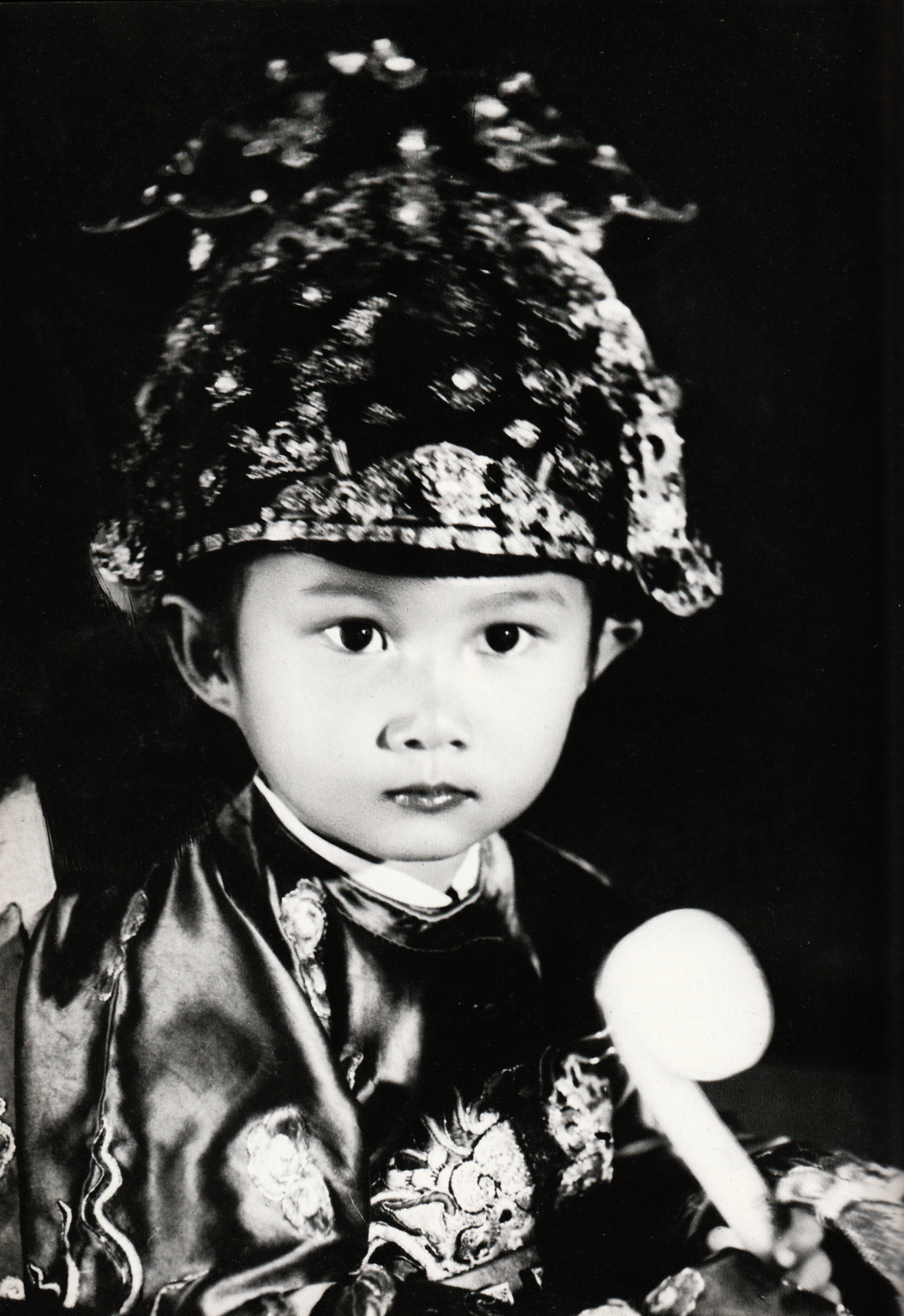
S.A.I. Prince Bao Long during his inauguration, Imperial City of Hue, 1939.
THE PRECIOUS FLEETING MOMENTS OF THE NGUYEN DYNASTY
BY S.A.I. PRINCE BAO LONG
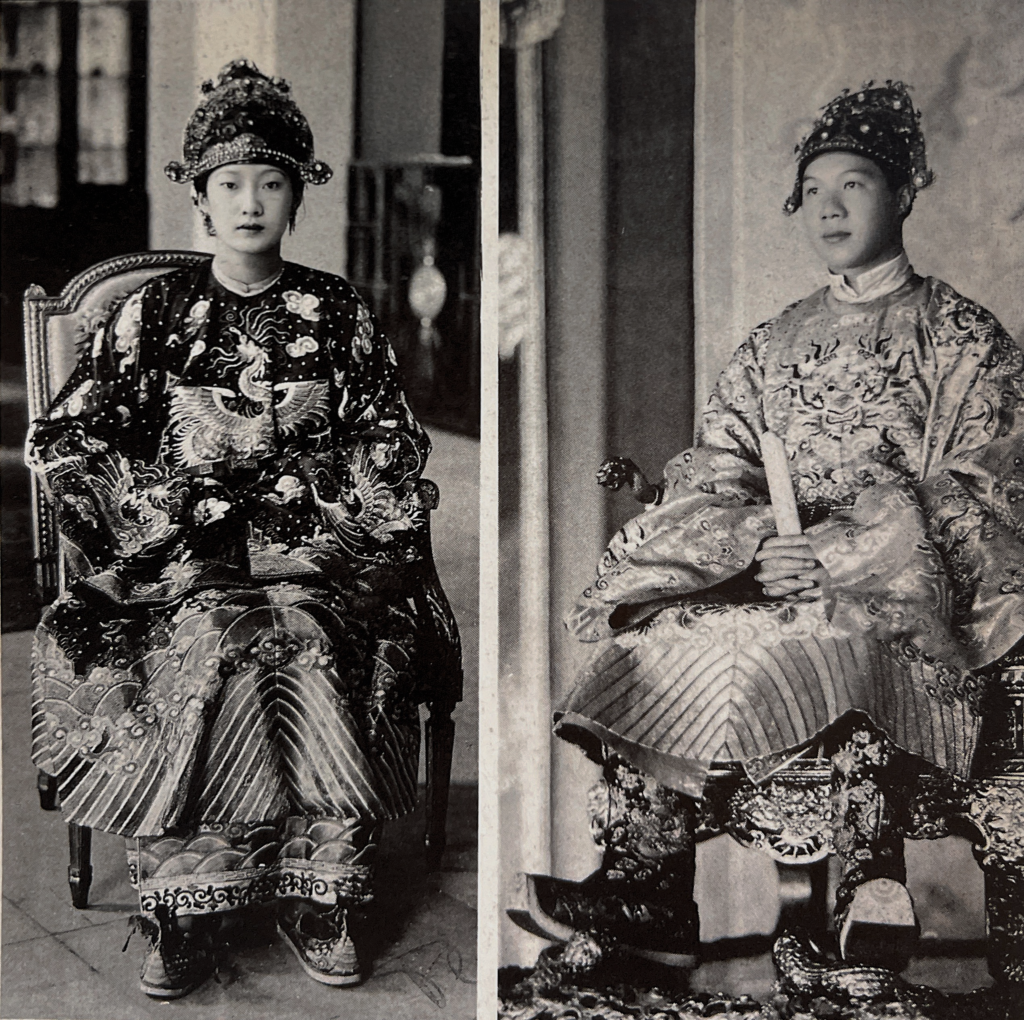
H.M. Empress Nam Phuong and H.M. Emperor Bao Dai, Imperial City of Hue, 1934
Delighted that this exhibition is taking place and that I have been invited to write a few lines, but aware that I am neither a historian nor a writer of any talent, I will only tell two short stories that touch me.
Once upon a time, there was a very young Vietnamese prince at the court of Versailles.
Indeed, at the age of seven, yes, at the age of seven, after three years of a perilous journey, Prince Canh was sent by his father King Nguyên-Anh, later Emperor Gia-Long, founder of my dynasty and descended from the distant family of Nguvên-Bac, protector of the arts in the 10th century, asked Louis XVI for military aid to reunite Vietnam... already! It was one of the many treaties of Versailles.
One can imagine this lovely child, in traditional costume, both serious and laughing and oh so exotic! The story goes that he was the darling of the court... that he caught a cold there, that he died of it.
In fact, he later commanded his father's armies and died, admittedly very young, but at twenty-one.
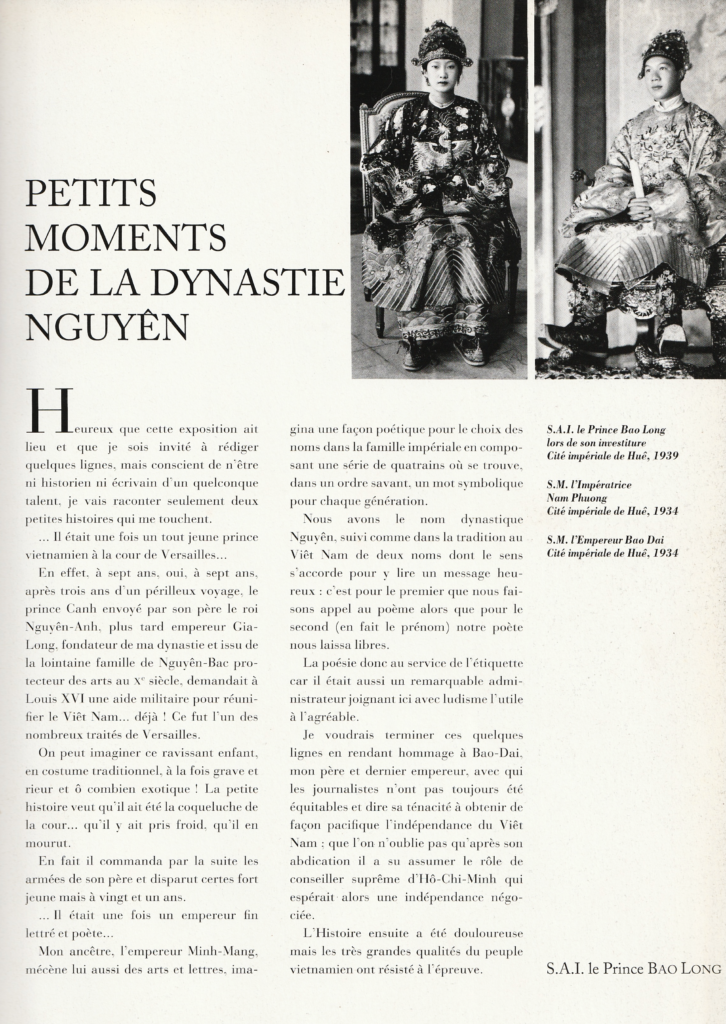
S.A.I. Prince Bao Long's original wordings in French
Once upon a time, there was an emperor, a fine scholar and a poet...
My ancestor, Emperor Minh-Mang, also a patron of the arts and letters, imagined a poetic way for the choice of names in the imperial family by composing a series of quatrains in which is found, in a learned order, a symbolic word for each generation.
We have the dynastic name Nguyên, followed as in the tradition in Vietnam by two names whose meaning agrees to read a happy message there: it is for the first that we appeal to the poem while for the second (in does the first name) our poet left us free.
Poetry therefore at the service of etiquette because he was also a remarkable administrator, playfully combining business with pleasure.
I would like to end these few lines by paying homage to Bao-Dai, my father and last emperor, with whom journalists have not always been fair and expressing his tenacity in peacefully obtaining the independence of Vietnam; let's not forget that after his abdication he was able to assume the role of supreme adviser to Ho Chi Minh who was then hoping for negotiated independence.
History then was painful, but the great qualities of the Vietnamese people stood the test.
S.A.I. Prince BAO LONG
Courtesy Mr Jean-François Hubert, Senior Expert, Vietnamese Art and his publication Le Viêt Nam Des Royaumes
PETITS MOMENTS DE LA DYNASTIE NGUYÊN
Heureux que cette exposition ait lieu et que je sois invité à rédiger quelques lignes, mais conscient de n'être ni historien ni écrivain d'un quelconque talent, je vais raconter seulement deux petites histoires qui me touchent.
... Il était une fois un tout jeune prince vietnamien à la cour de Versailles...
En effet, à sept ans, oui, à sept ans, après trois ans d'un périlleux voyage, le prince Canh envoyé par son père le roi Nguyên-Anh, plus tard empereur Gia-Long, fondateur de ma dynastie et issu de la lointaine famille de Nguvên-Bac protecteur des arts au X° siècle, demandait à Louis XVI une aide militaire pour réunifier le Viêt Nam... déjà! Ce fut l'un des nombreux traités de Versailles.
On peut imaginer ce ravissant enfant, en costume traditionnel, à la fois grave et rieur et ô combien exotique! La petite histoire veut qu'il ait été la coqueluche de la cour... qu'il y ait pris froid, qu'il en mourut.
En fait il commanda par la suite les armées de son père et disparut certes fort jeune mais à vingt et un ans.
... Il était une fois un empereur fin lettré et poète…
Mon ancêtre, l'empereur Minh-Mang, mécène lui aussi des arts et lettres, imagina une façon
poétique pour le choix des noms dans la famille impériale en composant une série de quatrains où se trouve dans un ordre savant, un mot symbolique pour chaque génération.
Nous avons le nom dynastique Nguyên, suivi comme dans la tradition au Viêt Nam de deux noms dont le sens s'accorde pour y lire un message heureux: c'est pour le premier que nous faisons appel au poème alors que pour le second (en fait le prénom) notre poète nous laissa libres.
La poésie donc au service de l'étiquette car il était aussi un remarquable administrateur joignant ici avec ludisme l'utile à l'agréable.
Je voudrais terminer ces quelques lignes en rendant hommage à Bao-Dai, mon père et dernier empereur, avec qui les journalistes n'ont pas toujours été équitables et dire sa ténacité à obtenir de façon pacifique l'indépendance du Viêt Nam; que l'on n'oublie pas qu'après son abdication il a su assumer le rôle de conseiller suprême d'Hô-Chi-Minh qui espérait alors une indépendance négociée.
L'Histoire ensuite a été douloureuse mais les très grandes qualités du peuple vietnamien ont résisté à l'épreuve.
S.A.I. le Prince BAO LONG
Originally excerpted from Le Viêt Nam Des Royaumes

